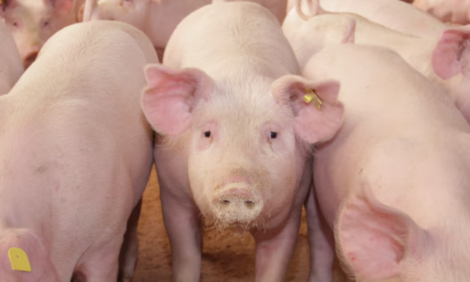



Novel stem cell technique aids in pig infection research
Novel technique may show how bugs interact with immune cells to infect livestockA method of producing immune cells from stem cells for research into pig infections is more affordable, practical and ethical than standard approaches, a study led by scientists from the Roslin Institute suggests.
Investigations using the technique will benefit from access to an unlimited number of a type of immune cells, known as macrophages, which are easy to manipulate and can be infected by viruses and bacteria for the study of infections, according to scientists.
The method reduces the need for animals in research and is less costly than conventional procedures, which use macrophages extracted from slaughtered animals and require continuous replacement.
Work conducted using the approach will be critical for devising effective strategies to combat important diseases such as African swine fever, and improve healthy, ethical livestock farming. For instance, the technique could be used to produce virus for the development of live vaccines.
Stem cell-derived macrophages can also be gene edited for targeted studies of the role of genetics in infections, for biotechnology applications, and to generate bespoke engineered cells for experiments.
"Macrophages are the first line of defence against infection, but in some cases pathogens target these cells and destroy them. It is not yet understood how that happens. We found that viruses replicated efficiently in macrophages derived from stem cells, showing that these cells are a great approach to learn about interactions between pig genetics and the biology of viruses or other pathogens," said Dr. Tom Burdon with the Roslin Institute.
Disease prevention
Scientists produced macrophages from pig stem cells through a protocol adapted from a method used for mouse and human cells, and observed they had similar features to macrophages used in existing procedures.
The stem cell-derived macrophages served as targets for infection by key pig infections, such as Salmonella and the viruses that cause African swine fever and porcine reproductive and respiratory syndrome, experiments have shown.
"This novel technique could help improve understanding of how infectious agents interact with the immune system of farmed animals, which ultimately can contribute to prevent disease spread and pandemics, improve animal welfare, and reduce the use of animals in research," said Dr. Stephen Meek with the Roslin Institute.
To watch stem cell-derived macrophages, click here.






